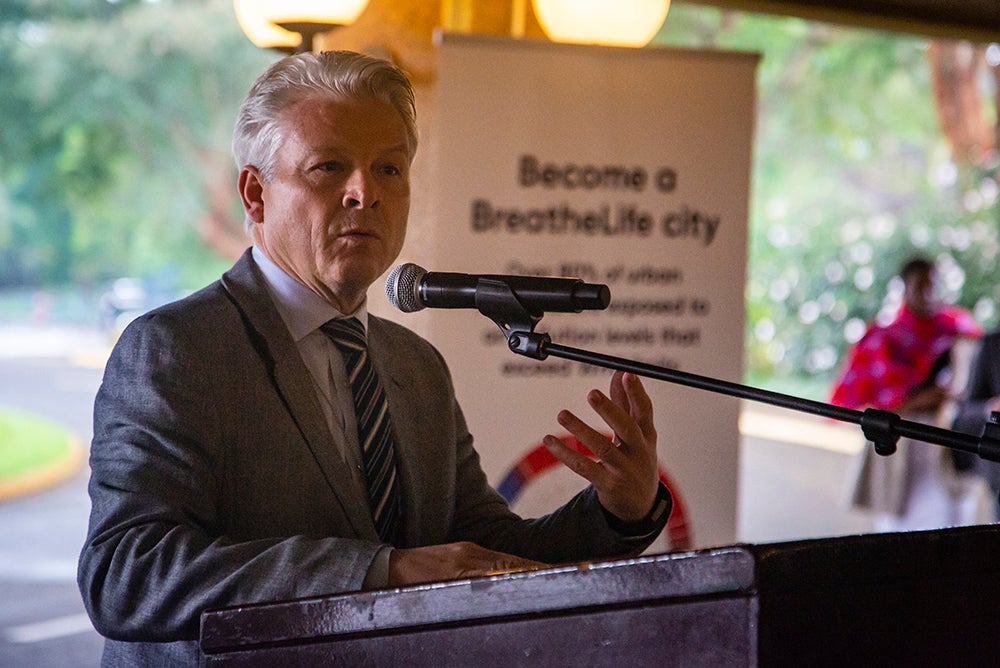NAIROBI, 07 June 2019 – With this year's World Environment Day theme being “Beat air pollution” it was apt that UNEP and UN-Habitat mark the occasion with a series of group bicycle commutes or “bike trains”. Especially useful in cities like Nairobi where cycling is not common, bike trains are fun and safe ways to ride together, and of course, cycling is a zero emission form of transportation.
Congratulating the cyclists upon their arrival to the UN Offices, Ms. Susan Gardner, UN Environment's Director of Ecosystem Division, emphasized the urgency of tackling air pollution calling it “one of the greatest environmental challenges of our time”.
“The need for tackling air pollution has never been more urgent,” agreed Rafael Tuts, Director of Programme Division at UN-Habitat. He shared the outcomes of a recent survey by WHO of over 4,300 cities worldwide. This research revealed that only 20% of the global urban population live in areas that comply with WHO air quality levels. In fact, air pollution levels in many developing cities can be 4 to 15 times higher than WHO air quality guidelines, putting many at risk of long-term health problems.
Referring to the bike train he noted, “Through this initiative we are also trying to convey to decision makers the need for better infrastructure for cycling and walking.”
“At UN-Habitat we believe that we can help shape urbanization towards more sustainable, healthy and low carbon pathways,” said Mr. Tuts. “This will require bold and ambitious efforts and changes in the way we plan, design, build and manage cities.”
The concept of the UN bike trains was launched in March 2019 to showcase alternative ways Nairobi-based UN employees can sustainably commute to work. Cycling reduces air pollution and the carbon footprint of the office goer, while peddling in a group enhances cyclists’ safety.
The bike trains will be held on the first Friday of each month.

Article: Aoibheann O'Sullivan
Photos: UNEP